
India’s strategy to move forward with developing countries
India has put forward a long-term strategy of advancing by prioritizing the common agenda of all developing countries rather than advancing alone.
It is the first time India has organized a summit to focus the attention of the international community on the priorities, perceptions and interests of developing countries. The two-day ‘Voice of Global South Summit’ held on December 12-13 was held in a virtual format.
The conference had a total of 10 sessions. Leaders and ministers of 125 countries of the Global South were present at the event. India has said that this summit has special relevance as the whole world is going through the challenges that have arisen in health, food security, easy access to energy, climate finance and technology and economic development and the difficult situation created by it.
In the opening session, Indian Prime Minister Narendra Modi discussed the problems faced by developing countries. He emphasized on the social and economic development of the Global South through a common resolution and change agenda. Discussing India’s achievements in the fields of vaccine production and development, digital public goods, financial inclusion, satellite technology, digital governance, etc., Modi said that he is ready to share this experience with other countries.
He pointed out the need to expand the access of developing countries to technology, knowledge and essential resources. The leaders participating in the program openly supported Prime Minister Modi’s new human-centered development proposal.
During the closing session, Prime Minister Modi announced the new programs launched by India related to the conference, including Aarogya Maitri, Global South Center of Excellence, Global South Science and Technology Initiative, Global South Young Diplomats Forum, Global South Scholarship, etc.
In a session involving Finance Ministers of different countries, the ministers exchanged their views on issues such as financial support to meet the development needs of the Global South, financial inclusion, implementation of digital public goods in the financial sector, and result-oriented and sustainable financial development partnerships.
In the conference, the environment minister included the balance between development and stability, the best practices in environmental protection and the importance of lifestyle for the environment, which was put forward by the Indian Prime Minister in October 2022, were discussed.
In the session attended by the Minister of Foreign Affairs, the ministers expressed their concern over the increasing fragmentation of the international landscape and expressed their views on how to create a favorable environment for the development priorities of the Global South. The ministers asked the international community to address the three challenges that have arisen due to food, fuel and fertilizer shortages. Ministers called for a renewed and inclusive multilateralism that reflects contemporary realities. The participants emphasized the need to raise a collective voice against the scourge of terrorism.
In the session attended by the Minister of Energy, the necessity of energy security for global and human development was emphasized. Access to energy despite increasing instability, ensuring energy savings through diversification of energy sources, best practices for the development of renewable energy and alternative energy, and the potential utility of biofuels were the main topics discussed.
In the session involving the Minister of Commerce and Trade, the Ministers shared their views on various strategies to improve the business and investment environment in developing countries, upgrade connectivity and commerce, ensure access to essential technologies and resources, encourage innovation and exchange best practices, and diversify the supply chain. The ministers agreed that long-term post-pandemic reform efforts will depend on various aspects such as simplifying processes, implementing technology-based solutions, investing in infrastructure and ensuring equitable access to global markets.
The participants in the session, which included the Minister of Health, emphasized the need to adopt inclusive methods for global health security. In that session, various methods and measures were discussed to develop digital public goods in health services, to promote traditional medicine, to build public capacities and to develop regional networks and to exchange the knowledge they have acquired. The participating ministers appreciated the vaccine-friendly initiative taken by India especially during the Covid epidemic as a concrete reflection of South-South cooperation.
In the session attended by the Minister of Education, the ideas of transforming the developing nation into a knowledge-based society were discussed in order to prepare future-ready manpower. Ministers said that to provide equality and quality in education, professional training, capacity building and best practices in the use of technology should be exchanged. India also shared its national education policy built on the basic pillars of access, equity, quality, affordability and accountability.
In the session dedicated to exchanging ideas for India’s G-20 presidency, the Indian Foreign Minister informed everyone about India’s major priorities for the G-20 presidency and also assured that India will work towards bringing the valuable suggestions received from the partner countries in the Voice of Global South Summit and G-20 meetings to global attention.
Nepal, Bangladesh, Cambodia, Guyana, Mongolia, Mozambique, Papua New Guinea, Senegal, Thailand, Uzbekistan, Vietnam, Belize, Chad, Colombia, Djibouti, Eritrea, Guinea-Bissau, Lebanon, Lesotho, Mauritius, Zambia, Nicaragua, Sierra Leone are participating in the conference. Ministers and officials from Sri Lanka, Sudan and other countries participated.



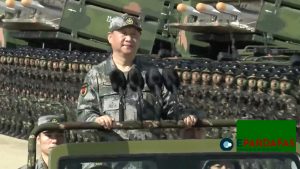
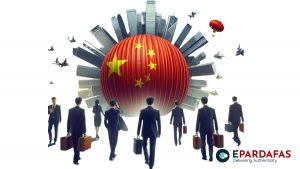

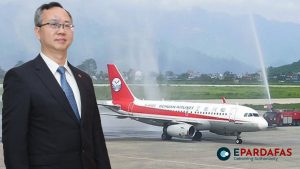
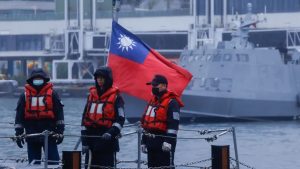

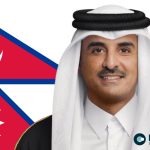
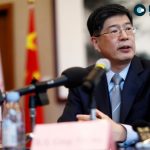
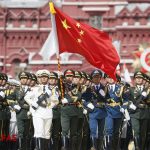
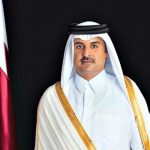
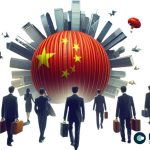
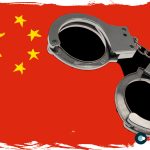
Comments